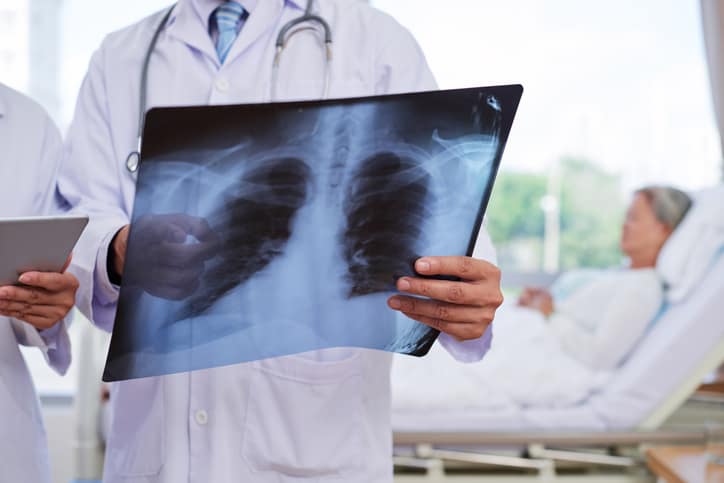Coronavirus disease 2019 (COVID-19), a respiratory illness caused by the novel severe acute respiratory syndrome coronavirus 2 (SARS-CoV-2), was declared a pandemic in March 2020, and has caused over a half-million deaths in the US. Hematopoietic stem cell transplant (HCT) or chimeric antigen receptor-T cell therapy (CAR-T) recipients have a higher risk of mortality with COVID-19 due to profound immune dysregulation.
In this study, we investigated the impact of SARS-CoV-2 in HCT/CAR-T recipients.
We conducted a single-center prospective study, including all (n=58) adult HCT/CAR-T patients who were diagnosed with COVID-19 at the University of Kansas Medical Center from March 2020 to May 2021. Baseline and disease-related characteristics were ascertained from medical records. Data were analyzed using SPSS version 21 (SPSS Inc, Chicago, IL). Bivariate analyses, using the chi-square and t-test, and logistic regression analyses were conducted.
The study included 58 HCT/CAR-T patients who acquired SARS-CoV-2 infection, including allogeneic HCT (n=32), autologous HCT (n=23), and CAR-T (n=3) recipients. The median age was 58 (24-77) years and 64% were males. Median time since HCT/CAR-T to SARS-CoV-2 infection was 17.7 (0.2-201.9) months, and 22% of patients acquired SARS-CoV-2 within the first 100 days post-HCT/CAR-T. Primary hematologic disorders were plasma cell (36%), myeloid (38%), or lymphoid (26%) malignancies. Myeloablative conditioning was performed in 62% of patients. Donors were autologous (45%), matched sibling (15%), matched unrelated (21%), and haploidentical (19%). Prior history of grade II-IV acute graft-versus-host disease (GVHD), active GVHD, and current immunosuppressive therapy (IST) was noted in 22%, 31%, and 36% of patients respectively. Concurrent infections were observed in 19% of patients. Lymphopenia (p=0.049) and high ferritin (p=0.020) were associated with mortality. COVID-19 severity was mild (50%), moderate (22%), or severe (28%). Clinical findings included pneumonia or abnormal chest imaging (50%), hypoxia (28%), intensive care unit admission (19%), and mechanical ventilation (10%). Therapies included remdesivir (41%), convalescent plasma (35%), dexamethasone (22%), monoclonal antibodies (19%), and tocilizumab (3%). The median duration of viral shedding (positive SARS-CoV-2 PCR) was 7.7 weeks (2-18.7) and 2 patients (post-CAR-T) had a persistent infection for over 5 months. After a median follow-up of 6.1 (0.5-13.6) months, the mortality rate was 16% in all patients and 28% in allo-HCT patients. Among 9 patients who died, the median survival after SARS-CoV-2 infection was 23 (14-140) days. In survivors with moderate-severe COVID-19, the median time to recovery was 4.2 weeks (1.1-24.7). Among allo-HCT recipients, 5 patients (16%) developed subsequent pulmonary chronic GVHD requiring systemic steroids and additional immunosuppression. Significant predictors of COVID-19 severity included allo-HCT (OR 3.6, 95% CI 1.2-10.8, p=0.020), history of grade II-IV acute GVHD (OR 4.6, 95% CI 1.10-18.86, p=0.036) and concurrent IST (OR 5.9, 95% CI 1.8-19.8, p=0.004).
Hematopoietic stem cell transplant and CAR-T cell therapy recipients are at an increased risk of moderate-severe COVID-19 pneumonia and higher mortality with SARS-CoV-2 infection. Our findings confirm the need for continuing vigilance with social distancing and masks, vaccination prioritization, close monitoring, and aggressive treatment in HCT/CAR-T patients.
Copyright © 2021. Published by Elsevier Inc.
Impact of SARS-CoV-2 in hematopoietic stem cell transplant and CAR-T cell therapy recipients.


